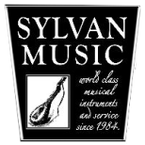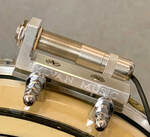|
Here's a question we hear all the time in the shop: Is it better to learn on an acoustic or an electric guitar?
The short answer is, neither. One isn’t inherently better or worse than the other for a new player. It’s true that the basic techniques involved in playing the guitar are fairly universal. They all have strings and are (usually) played with two hands. They are (again, usually) tuned the same way, and most have frets, etc. It’s also true that each category of guitar has unique sonic properties and abilities, which, in the long run, have the potential to lead a player down very different musical paths. When selecting your first guitar, you’ll typically have 3 basic categories to choose from: Acoustic Steel String, Acoustic Nylon String, and Electric. What matters most to begin with is what style of music you are hoping to eventually learn, as each type of guitar will have its own unique sound and feel. If you want to learn how to play loud rock & roll, for instance, at some point you’re likely going to want an electric guitar and an amplifier. That doesn’t mean you can’t rock out on an acoustic guitar, but no acoustic guitar is ever going to sound exactly like an amplified electric guitar. If you’re into classical guitar music, as a contrast, a nylon string acoustic guitar will get you the sound you’re looking for. If you’re anything like me, and are interested in many styles of music, acoustic and electric, then you can’t really go wrong. If you stick with it long enough, you’ll likely end up with at least one of each kind anyway. In that case, having an acoustic to begin with means playing the thing is as easy as picking it up and putting your hands on it, without any messing about with cables and electricity. This makes the acoustic much more portable as well. Nylon strings are much easier on the fingers and steel strings have a bigger sound. Steel strings are also what most people associate with as an acoustic guitar, though not always. Any of the folks here at Sylvan, myself included, would be happy to guide you you to an instrument that you’ll be excited to pick up and play, which is the most important thing! Our shop has one of the best selections of guitars out there, and the best thing to do is come down check them out for yourself! -Rory Cloud
2 Comments
 It’s no secret that I love Nash Guitars! I purchased my first Nash P-Bass about nine months ago and I couldn’t be happier with it. However, I was a fan years before I ever took the plunge and bought one. Without looking at the decal on the headstock, most people assume these are a creation of the Fender Custom Shop, with the neck artfully worn down to simulate years of play wear and thin nitrocellulose lacquer that lets the wood breath unlike the thick, glossy Polyurethane finish that has become the standard on most new guitars. The whole mission of Nash Guitars is to make guitars the way they used to be made. Nash relic’s their guitars, giving them that 'lived-in' vibe that people either love or really hate (more on that in my next blog post). While they mostly deal in recreations of 50s and 60’s Fender guitars and basses they also have a growing line of guitars like the Wayfarer model that are uniquely their own. While Nash Guitars are great off the rack, one of their biggest selling points is that they allow clients to customize their own guitars. From style of body & fingerboard to custom color (matching headstock even!) all the way to neck profile & pickups. They even let you choose what year you want your instrument to closest resemble as well as just how beat up it should be. Since I'm a lefty, what really drew me to Nash was that they faithfully recreate models that Fender no longer offers in a left-handed version. I got to customize my bass exactly the way I wanted for a fraction of what it would have cost to go through the Fender Custom Shop. Since the guitar world can be tough for us left-handers who can feel marginalized by the lack of products offered to us and the hefty price tag that often accompanies what is available, it’s nice to have companies like Nash out there. Since receiving my Nash it has become my go-to bass on stage and in the studio and I couldn’t be happier with its feel, sound, and look. So whether you’re a lefty or righty, into newer instruments or a vintage gear geek, Nash Guitars are definitely worth checking out. Tune in for my next blog post when I tackle the divisive topic of guitar Relic’ing! -Aidan Why do electric guitars sound terrible when plugged directly into a computer for recording with applications like GarageBand or Sonar?
One way to look at it is this: The output signal of an electric guitar is “analog” and to get good, quality, sound into a computer, that signal needs to be converted to “digital” instead. In order to change the guitar’s output from analog to digital it’s necessary to use a device called an “audio interface.” In addition to converting audio to digital, an audio interface offers some additional benefits:
If you’re planning to record your electric guitar, bass or any instrument with an electric output, then an audio interface is definitely the way to go. Thanks & enjoy! -David  I recently made the pilgrimage to week one of Coachella 2019 and I want to highlight two bands who really shined this year and give you a super quick rundown of some of the amazing guitars they rocked with. All you Coachella haters out there (and trust me, I understand where you’re coming from) bear with me. For all your gripes and grumbles about DJ’s and Hipsters, it can be an incredible experience. Three days and nights of debauchery in the Southern California desert appreciating art, eating good food and hearing some of the best bands in the world is worth a visit in one’s lifetime. Even if, *Gasp*, you don’t like the lineup. Just some food for thought. Anyway. Let’s talk bands and guitars. First and foremost… Kruanghbin Hot damn this band is good. They tore it up at the Gobi Tent in a 9:20 PM time slot with a blistering show, blending the sounds of Thai Funk, Middle-Eastern Psychadelic, and Classic Soul, to put it mildly. The Houston three piece easily set themselves apart as one of the most technically proficient groups at the festival, and their gear as is cool as they are. Lead guitarist Mark Speer tours with and shredded on one single guitar: his 2001 Fender Classic Series '70s Stratocaster. Speer hot-rodded the Strat with DiMarzio Cruiser pickups in the neck and bridge as well as extra-large frets and a TUSQ saddle and string trees, for ultimate bending. His reverb drenched sound oozes from his ‘68 Custom Deluxe and the crowd ate it up. Bassist Laura Lee on the other hand grooved on an SX Vintage Series bass with wound strings (sweet) that haven’t been changed since she got it in 2010 (yuck). She runs it through a vintage Fender Bassman amp, and boy oh boy did it thump. All said and done she nearly burned the place down her rhythm was so fire. These cats are everywhere right now, so just because Coachella is over doesn’t mean you can’t still catch them at a venue near you. The 1975 Do yourself a favor and go see The 1975 play, because live performance is where this Manchester based pop group really stands out. I don’t follow this band religiously, or listen to them on the reg even, but I’ve seen them a couple times at different venues and they consistently impress me with a good vibe, high energy, face melting, 80’s synth inspired rock show. This time was around was no exception. They lit up the Coachella Main Stage in a 8:25 PM time slot, and it seemed like the entire festival came out to see these guys play. Lead singer and rhythm guitarist Matt Healey played an industry classic, the indomitable Gibson ES-335, (we’ve got a couple of these in the shop, hint hint) and it sounded so good it brought a wee tear to my eye. He also has a penchant for playing vintage Fender Mustangs (have those too, hint hint hint) , but I love me a hollowbody, mmmhmm. Somebody call the Ninja Turtles, because lead guitarist Adam Hann was one serious shredder, laying into a 2018 forest green Fender Elite Strat that brought some sweet tones to their dreamy, 80’s esque, electronic sound. He also played his usual 1962 white Fender Jaguar out of two gorgeous Hiwatt 50w Custom 2x12 Combos, and for one song, his infamous Music Man John Petrucci JP6 out of super sexy, super clean, Fender Deville. Woof. Okay folks, that’s all this time around. I got blisters on my typing fingers and I’m still suffering from post festival depression. I’m going to take a long nap and dream about sweet vintage gear, bands and outstanding shows of Coachella past and future. Vaya con dios. -Curtis  It just so happens that a new Kremona S65C has landed in my lap and I can’t stop playing it! After having a different classical guitar for a few years, this is whole new territory. The neck is so slim, the playability is so smooth, and the sound is very broad. I never thought that I’d be playing classical guitar this much but this one just won’t let me stop. I have a huge desire to play guitar all the time and the world of nylon strings has never felt or sounded better. Lots of people are always looking for something new when it comes to playing music. Whether that be new pedals, a new type of instrument, or a new style, it all comes down to experimentation until you find something to settle on. I’m so excited to have shifted styles to open up my music. It’s good to remember when we are looking at instruments that it’s the music that keeps us all together, and these instruments are extensions of that music. I always find it very intriguing, genuine, and a bit surreal, when someone has kept an instrument so long that they have relic-ed it, put on their own wear and tear, and it shows how much they love playing music with that instrument. When I search for an instrument I make sure that it can keep me floating with its beautiful melodies and resonant bass. This Kremona is definitely doing the job and I know it will be played far more than I could hope for.  Is it Christmas in May? Well, when you come into work to discover that one of our newest guitar acquisitions is a 12-string electric Rickenbacker, it sure feels like it to me! Now, electric 12-strings may not be everyone’s cup of tea, but love them or hate them you have to appreciate the cultural importance of the 12-string Rick. The guitar damn near defined the sound of the British invasion and 60’s rock & roll and also happens to be the chosen axe of many of my rock heroes from The Beatles to The Byrds to Tom Petty. I can’t quite put my finger on why I love these guitars so much. Maybe it’s their unique jingle-jangle or twangy timbre, or maybe it’s just because they look so cool. Either way there’s just something about that sound that puts a big goofy smile on my face. - Aidan Collins Hello friends, I know it's been a while but I'm back, and I bring with me a very profound declaration: I like flatwound strings.
For those of you who don't know, flatwound strings are wound with steel ribbon instead of wire, making for a smoother slide and less string noise. They are sooooooo comfortable; it's like giving your fingertips a massage while you play! Sure they're not quite as crisp and sustain-y as traditional roundwound strings, but they do sound great. Don't listen to any of those stuck up ninnies who insist that flatwound's are only for jazz, they can give you a great rock tone too! And did I mention how friggin' cool it feels when you play. Trust me, go out today and pick up a set to try on one of your guitars. Several companies make them and they range in price. Yes they're a bit more pricey than regular strings but none of fortunes will fall significantly over a few bucks. If you don't like 'em then that's ok too, but you owe it to yourself to give it a go. Until next time, adios -Mikey It happens quite often that a customer will come in to the shop telling us that playing guitar hurts their fingers, or with a story of how they tried to learn guitar years ago but it was too hard on their hands. Now, this is true: playing guitar can hurt because your hands and fingers aren't used to contorting into the odd shapes required to form certain chords, and the strings can cause your finger tips to be sore after practicing. This is normal and natural; just keep it up and eventually you're muscles will adapt and you'll form calluses and, before you know it, it won't hurt!
The flip side of that coin is that sometimes the pain is the fault of the instrument. When instruments are not set up properly, the height of the strings can be too high, causing the instrument to be almost unplayable, and your fingers and hands to hurt more than they should. Often a beginner won't be aware that their instrument can be made to play easier and just figure that it's too hard and they give up. A 'Set-Up' is like an oil change and tune up for your car; it's something that every instrument needs from time to time. So if your fingers are hurting, bring your instrument down to us for evaluation. We can help to make sure your instrument is as playable as possible so that it keeps you playing and enjoying every minute of it. This week I would like to highlight a piece of equipment that serves an important role both functionally and aesthetically on a guitar: the pickguard! There have been a number of different pickguard designs over the years, some crazier than others, and I thought I'd show off some of my personal favorites. By the way, if you are into bluegrass music, check out the 1972 documentary "Bluegrass Country Soul"...You will not only see some enormous/ridiculous pickguards, but also some classic performances by the likes of Earl Scruggs, The Osborne Brothers, Ralph Stanley, The Country Gentlemen, Roy Acuff...well, you get the idea! Flatpick wizard Bryan Sutton is fast becoming one of my favorite modern acoustic guitarists. He holds multiple Grammys as a go-to studio musician in Nashville and plays some of the fastest and cleanest lead lines I've ever heard. Though his 1948 D-28 wasn't built to be left handed, Bryan says the guitar "spent some good playing time upside down!" Thus the twin pickguards. Perhaps the most outrageous of the bunch, the Porter Wagoner "Wagonmaster" D-41 features one of the most outlandish pickguards I've ever seen on an acoustic guitar. Sort of a Batman-meets-Spinal Tap thing going on here. Nothing conventional about this country singer's axe! Perhaps the most recognizable guitar in country music (also a great representation of the virtues of having a pickguard!), Willie Nelson's famed "Trigger". If that guitar could only talk, I believe it would have a quite a few stories to tell... Until next time! -McCoy  McCoy Tyler is a salesman at Sylvan Music with an aptitude towards acoustic guitars, amps, and pickup systems. When he's not spouting musical knowledge on the sales floor, he can be found doing some hot picking and sweet singing with his group The McCoy Tyler Band. I've never understood it when musicians smash their instruments on stage. I get that it's part of the show, in the moment, and maybe an expression of passion that can't be contained, but why destroy the outlet for your art? With the recent news of Kurt Russell accidentally smashing a priceless 150 year old Martin guitar on the set of Quentin Tarantino's new movie "Hateful Eight", I thought I'd express my distaste for acts of violence against instruments. Lets get this straight; most of us treat our instruments like children, if we knick it on the edge of the kitchen counter, or it falls from its stand we spiral into a deep depression, or spew streams of four letter words not suitable for mixed company or those with weak hearts. Is it because most of us could never imagine smashing our instruments that doing so is seen as 'punk rock'? Or is it because most of the artists who desecrate their instruments could have them replaced instantly and have no emotional attachment? Whatever the reason, I'm not a fan. Why not donate that perfectly functional instrument to a kid who can't afford it so he can have a shot a being a rock star himself? I guess the answer is 'because it's not cool'. Cool or not I think its a slap in the face to the people that made the instrument, and all the little dreamers that can't afford to have a nice instrument.  Kevin is a veteran Sylvan Music employee, with a profound love of usually four stringed instruments like bass and ukulele. He's also an accomplished jaw harpist. You can find him playing shows around town in his folk/rock band Sun Maiden, or his metal band Rat King. If he's not at work he's probably covered in grease working on one of his motorcycles. |

 RSS Feed
RSS Feed



